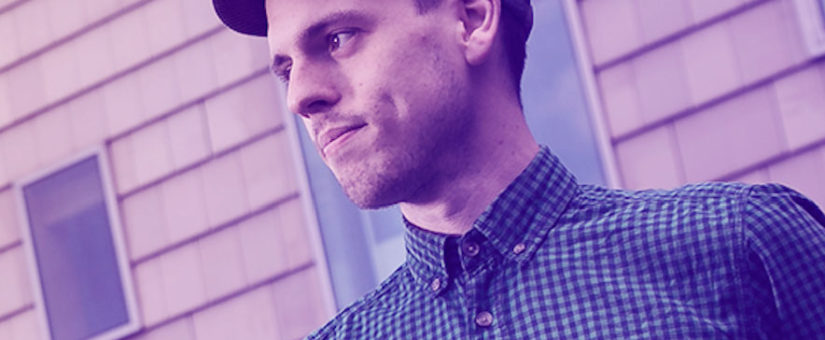There’s nothing like hearing advice from people who have lived the world of management first-hand. We’ll be interviewing managers and entrepreneurs from all over the world to learn how they started out and what you should do today to follow in their footsteps. We start our series with James Guerrini, Creative Director and Senior Web Developer at Mediaraft.
What is a typical day for you?
A typical day at Mediaraft depends entirely on what sort of projects we have on and the stage they’re at – I usually begin by answering emails and dealing with any new client enquiries before heading into the office to meet the team and get the coffee on! We’ll then have a quick meeting to discuss priorities for the day and assign tasks, splitting the team into small groups in order to move projects along as smoothly as possible. I tend to oversee the work that’s going on, managing projects, but also getting involved at every stage, to offer support and ideas. We finish our day when I’m happy with what’s been achieved, but the team can take breaks whenever they want, we don’t heavily structure our working day. As long as the work’s done, it’s all good.
What motivated you to get into the world of business?
Hopefully without sounding too cheesy or obvious, it was my Dad (he’s a successful property developer who lives and works in Poland). After studying media at college, I decided I wanted a drastic change; I wanted to enter the business world fast. So, I flew out to Poland where my Dad took me under his wing for a while, he wanted to show me that business and success was what you made of it, so he’d take me along to meetings with huge investments taking place, with all of these big wigs from international firms and made sure I could hold my own with them, giving presentations, showing me it wasn’t out of reach.
He showed me the possibilities and value of working to achieve your own goals, even (and especially) if that meant working my way up from the bottom rung of whatever ladder I chose.
Who inspires you?
I get constant excitement from following the careers and successes of people who inspire me, it’s a huge part of my driving force and I find massive solace in researching people who’ve built or developed something that’s changed the world – especially in the field of technology. I could go on for days, but Elon Musk, Steve Jobs, Gary Vaynerchuck, and Guy Kawasaki are a good collective example of the people I look to for examples of how to do it right.
My team are also a huge inspiration, each and every day. I’ve found that another true passion for me is training/teaching creatives and helping them to see what they’re truly capable of. I will challenge people and they’ll reciprocate which is important for all parties and means that we’re providing consistently valuable learning experiences for each other.
What hobbies or extra-circular activities do you feel have helped you in your working life?
Having an outlet is incredibly important, you need something to brush away the cobwebs when you’re in a high stress position (which working for yourself always is) and I’ve always enjoyed cycling, especially down-hilling. It’s a total rush. I also practice Mindfulness, which is a quickly growing take on meditation and for me and several people I know, a fantastic way to teach yourself to switch off and act as an antithesis to work.
How did you make yourself stand out from the crowd during recruitment?
In the past, getting jobs such as Marketing Management positions at large firms or at the start as a graphic designer (this was pre social media days) I would make sure that my CV / Portfolio communicated who I am through the design and presentation and the copy. I think that people quickly see I’m a tad quirky, but completely obsessed with the industry I’m in. That helps!
I also make sure that when I’m being interviewed, I demonstrate that I can quickly analyse and interpret what will help that particular company to thrive and expand, I’m not afraid to suggest new methods or to speak up and be noticed even if it means a bit of constructive criticism. Be yourself, stand tall and show your excitement and passion for what you can do for them.
What do you know now that you wish you could tell yourself when you were just starting out?
I’d have to tell myself that it only gets harder, the bigger your company gets. There seems to be a focus on starting out and finding your footing as a business, but once you’ve got clients, once the stakes are higher and the staff are there, it’s increasingly difficult, you have a responsibility to make sure projects are delivered, no excuses. You also have to listen to the market and be willing to pivot from your initial plan or focal point, if that’s where the demand is, you can’t be too sentimental about what started it all.
What advantages do smaller companies, such as Mediaraft with 6 team members, hold over larger agencies?
Personality – All the way! We aren’t a faceless corporation or a massive team with offices in multiple countries, but that means that when you pick up the phone to get some help with your new website or need a social media campaign managing, it’s us you speak with and us who’re working with you to achieve your goals. We’re genuinely good friends with loads of our long term and past clients; we take the time to prioritise getting to know the people behind the business, something large agencies only do to the point of designing their branding and cultivating a lead. Our hearts are in it in a totally unique way.
How do you see Mediaraft growing in the near future?
It’s a tough, highly competitive industry, but we’re constantly developing new ways to stand out and ensure Mediaraft’s evolving. As well as constantly working to push our brand position and improve our approach and process, we’re developing a new “arm” or sister company, called “Pumped Social” (purely offering social media and content marketing). We’re looking to start a training programme too, fairly soon – We’ve seen so many people graduate, or spoken to people who are weighing up their options about studying, who aren’t industry ready and find it difficult to find their footing or even a basic position, so we want to bridge that gap for creatives and offer them opportunities to train with us, learn from us and gain that extra edge many companies are looking for.
You’ve worked with interns from Leicester University in the past, can you speak to the value of programmes like this, for both the interns and the companies taking them on?
Work experience and intern placements are fantastic – It’s a great way for students to understand the industry they’re hoping to break into, as well as a real eye-opener for them, in terms of the reality of the job, day to day.
Especially with design, I think it’s imperative to have a genuine appreciation of the fact that you don’t get to design what you want or spend your days coming up with endless gorgeous, “arty” concepts: You’re working to a brief, often, your client will be picky, hate the design you love the most (and be very vocal about it!), you will also have to work with existing corporate identities which can be challenging and something most interns have never worked with.
I can’t speak for other agencies, but if I see a spark in someone, I’ll push them, even if they’re only with us for a week or two – It’s my management style, but it means you’ll get my time, meaning students can seriously up their game. They work on live projects, talking to clients, coming to meetings and I expect hard work. It’s an incredibly competitive game, so anything extra to help you stand out, especially in terms of experience – you just have to go for it!
Get yourself on the right path to put James’ advice into action. Find out how to apply for Business Management and Accounting & Finance courses today!



